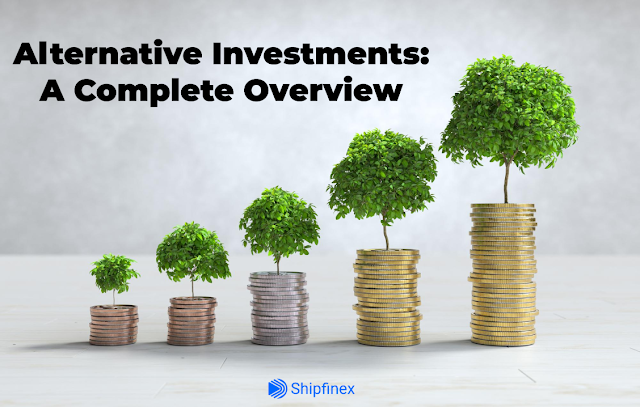Alternative Investments: A Complete Overview
Alternative Investments: A Complete Overview
In this guide, we will provide you with a comprehensive overview of alternative investments, which are non-traditional assets that offer investors unique opportunities to diversify their portfolios, enhance returns, and hedge against market volatility. Alternative investments include a broad range of assets, such as private equity, real estate, hedge funds, commodities, infrastructure, art, and collectibles.
Private Equity
Private equity refers to investments in privately held companies that are not publicly traded. Private equity funds are managed by professional investment firms that pool capital from institutional and accredited investors to acquire, operate, and sell companies. Private equity investments are typically illiquid, long-term, and require significant due diligence and active management. Private equity can offer high returns, but also involves high risks and fees.
Real Estate
Real estate investments include direct ownership of properties, such as residential, commercial, or industrial buildings, as well as indirect ownership through real estate investment trusts (REITs) or private equity funds. Real estate can provide stable income, capital appreciation, and inflation protection, but also involves risks such as vacancy, maintenance, and market fluctuations.
Hedge Funds
Hedge funds are private investment partnerships that use various strategies to generate returns, such as long-short equity, global macro, event-driven, and quantitative. Hedge funds are typically open only to accredited investors and have high minimum investment requirements and fees. Hedge funds can offer diversification, downside protection, and alpha, but also involve high leverage, illiquidity, and regulatory risks.
Commodities
Commodities are physical or financial assets that are traded on exchanges or over-the-counter markets, such as metals, energy, agriculture, and currencies. Commodities can provide exposure to global economic trends and inflation, but also involve risks such as price volatility, supply disruptions, and storage costs. Commodities can be owned directly, through futures contracts, or through exchange-traded funds (ETFs).
Infrastructure
Infrastructure investments include assets that provide essential services to the economy, such as transportation, energy, water, and telecommunications. Infrastructure assets can offer stable cash flows, long-term contracts, and government support, but also involve risks such as regulatory changes, construction delays, and natural disasters. Infrastructure investments can be made through private equity funds, public-private partnerships, or listed companies.
Art and Collectibles
Art and collectibles are tangible assets that have aesthetic or historical value, such as paintings, sculptures, antique furniture, rare coins, stamps, or wine. Art and collectibles can provide diversification, potential appreciation, and hedging against inflation, but also involve risks such as authenticity, provenance, and market demand. Art and collectibles can be bought directly, through auctions, or through specialized funds.
Alternative Investments vs. Traditional Investments
Alternative investments differ from traditional investments, such as stocks, bonds, and cash, in several ways. Alternative investments tend to have lower liquidity, higher volatility, and less transparency than traditional investments. Alternative investments also require more specialized knowledge, due diligence, and active management than traditional investments. However, alternative investments can provide unique benefits, such as access to non-correlated returns, downside protection, and alpha.
Conclusion
In conclusion, alternative investments can be a valuable addition to a well-diversified investment portfolio, but require careful consideration of the risks and opportunities involved. Private equity, real estate, hedge funds, commodities, infrastructure, art, and collectibles are some of the main categories of alternative investments. Investors should seek professional advice and conduct thorough research before investing in alternative assets.



Comments
Post a Comment